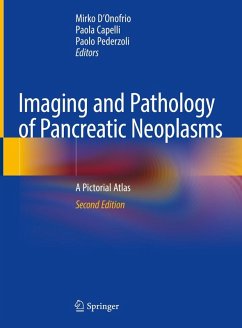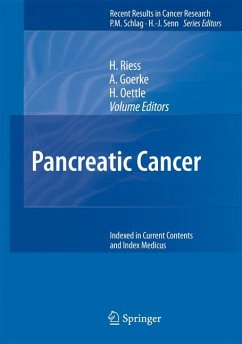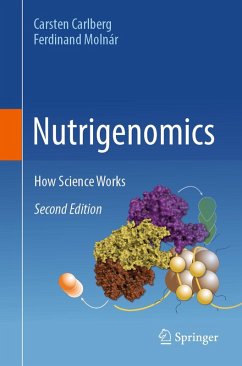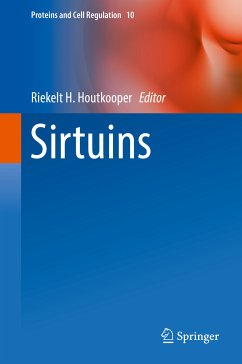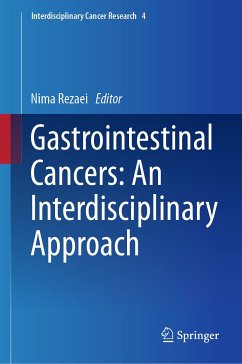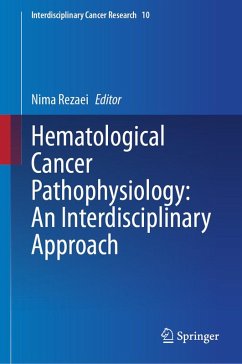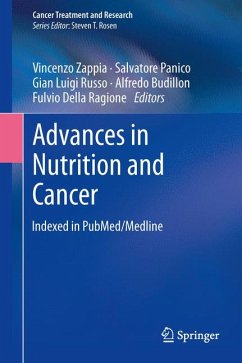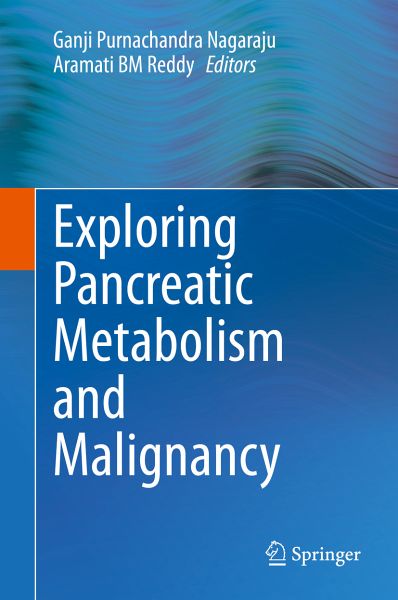
Exploring Pancreatic Metabolism and Malignancy (eBook, PDF)
Versandkostenfrei!
Sofort per Download lieferbar
72,95 €
inkl. MwSt.
Weitere Ausgaben:

PAYBACK Punkte
36 °P sammeln!
This book comprehensively describes the association between metabolic syndrome and pancreatic cancer progression, and the mechanism of action and target definition with a view to drug discovery. Metabolic syndrome, which includes adnominal obesity, hypertension, dyslipidemia, and hyperglycemia, has recently been shown to play an important role in the etiology and progression of various cancers. Further, obesity and diabetes have been associated with an increased incidence of gastric cancers.The book reviews the key biological mechanisms underlying the association between metabolic dysregulatio...
This book comprehensively describes the association between metabolic syndrome and pancreatic cancer progression, and the mechanism of action and target definition with a view to drug discovery. Metabolic syndrome, which includes adnominal obesity, hypertension, dyslipidemia, and hyperglycemia, has recently been shown to play an important role in the etiology and progression of various cancers. Further, obesity and diabetes have been associated with an increased incidence of gastric cancers.
The book reviews the key biological mechanisms underlying the association between metabolic dysregulation, including obesity-associated enhancement of growth factor signaling, inflammation, and perturbation in pancreatic cancer cell growth and metastasis. It also illustrates the role of the inflammatory signaling pathway in metabolic diseases as well as tumor growth and explores the potential of these pathways as the rational targets for pancreatic cancer therapy.
Lastly, the bookoffers a comprehensive description of the challenges associated with diabetes and pancreatic cancer therapy.
The book reviews the key biological mechanisms underlying the association between metabolic dysregulation, including obesity-associated enhancement of growth factor signaling, inflammation, and perturbation in pancreatic cancer cell growth and metastasis. It also illustrates the role of the inflammatory signaling pathway in metabolic diseases as well as tumor growth and explores the potential of these pathways as the rational targets for pancreatic cancer therapy.
Lastly, the bookoffers a comprehensive description of the challenges associated with diabetes and pancreatic cancer therapy.
Dieser Download kann aus rechtlichen Gründen nur mit Rechnungsadresse in A, B, BG, CY, CZ, D, DK, EW, E, FIN, F, GR, HR, H, IRL, I, LT, L, LR, M, NL, PL, P, R, S, SLO, SK ausgeliefert werden.



